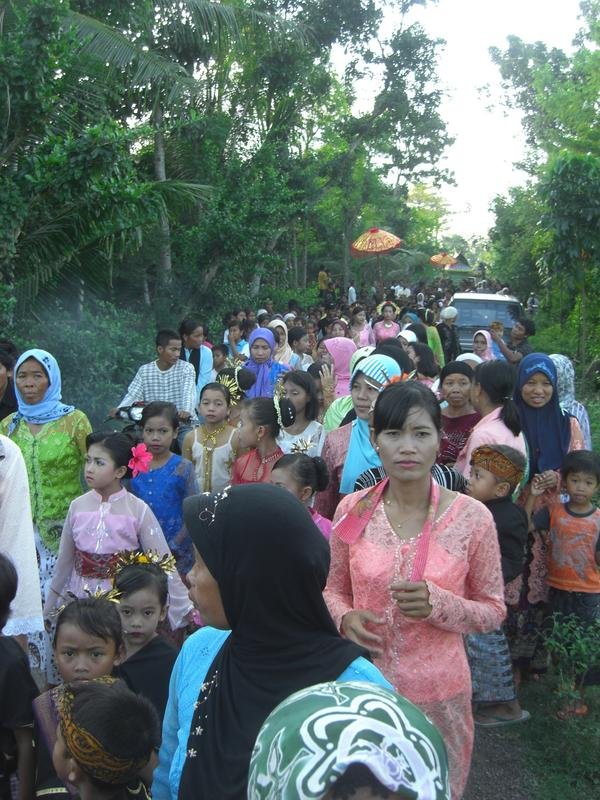merantau
Senior Member
Mt. Tambora - it had defeated me this time. As I rode towards Hu'u Beach memories of my climb there in 2008 returned. It was a special place made more so because few outsiders ever got to visit it. On April 15, 1815 the world shook. Tambora exploded and 150 cubic kilometres of mountain was catapulted 43 km skywards from where it circled the globe, blotting out the sun and cancelling the northern hemisphere summer the following year. In west Sumbawa, ninety thousand people perished; famine stalked the land both there and in Europe. Standing on Tambors's rim, gazing into its gaping 6.5 km wide crater, I came face to face with my insignificance. Momentarily lost in reverie, a wheeling sea eagle apppeared overhead just in time to drag me back into my present world of engine hum and road noise.
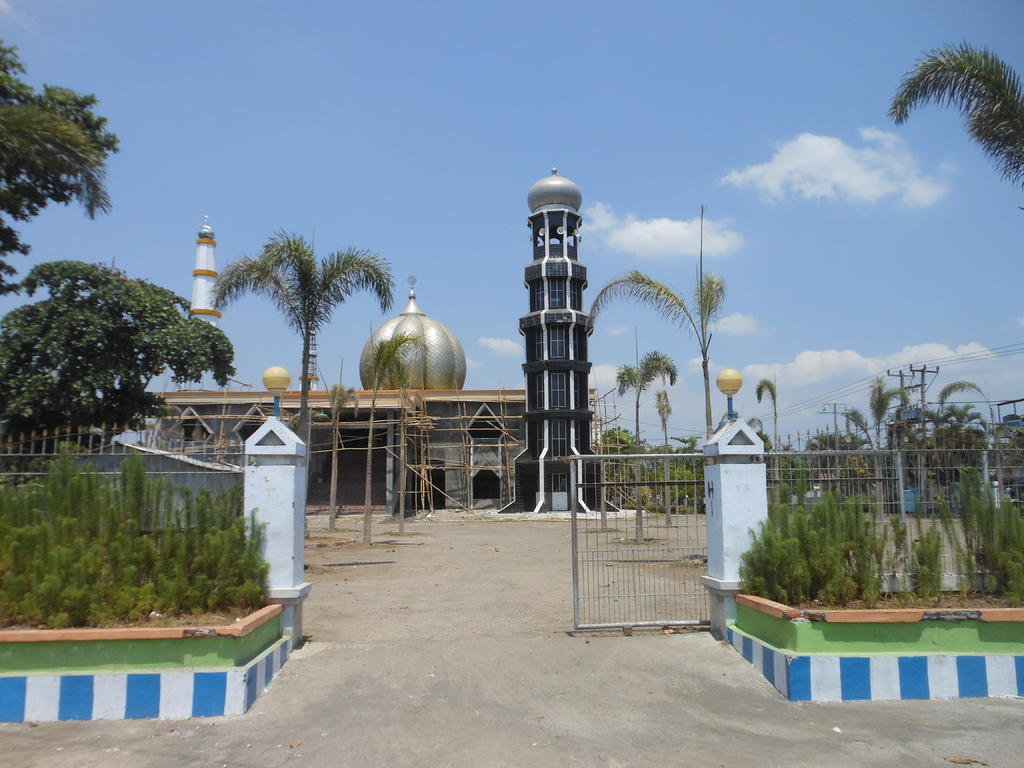
I motored through Soriuti and made my way towards Dompu. Fields of rich green padi, criss-crossed with scare lines festooned with plastic bags, bordered the road. Before long I reached the outskirts of Dompu town; onion-domed mosques dotted the skyline. I wove through the narrow streets adjacent the market, the cackle of my exhaust mixing with the clip-clop of horse drawn dokars. I kept a sharp eye out for the road signs that would guide me to the bridge across the river and the road to Hu'u beach.
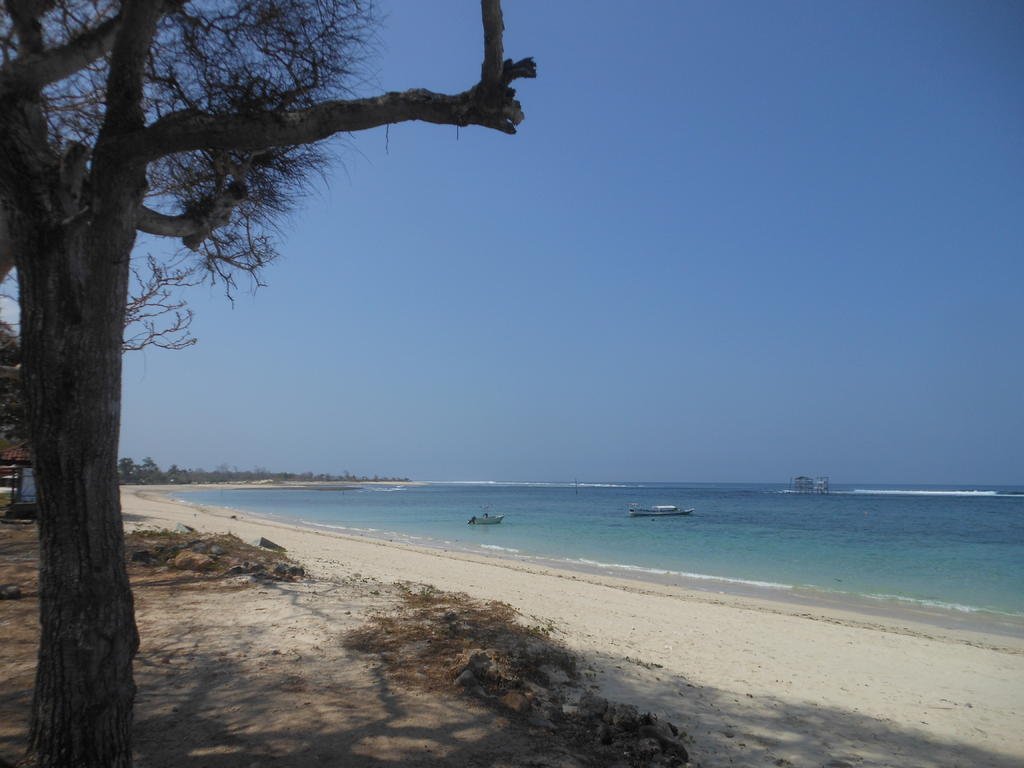
I was now deep into the afternoon and I caught myself daydreaming instead of concentrating on the road - a sure sign tiredness was kicking in. Forty kilometres to go. I motored through teak forests, farmland and scrub, only seeing the occasional vehicle but encountering numerous herds of wandering goats. I passed by Bugis settlements, with their characteristic stilt houses perched above the sea, boats pulled up on the beach, nets drying in the sun and corn cobs roasting on open fires.
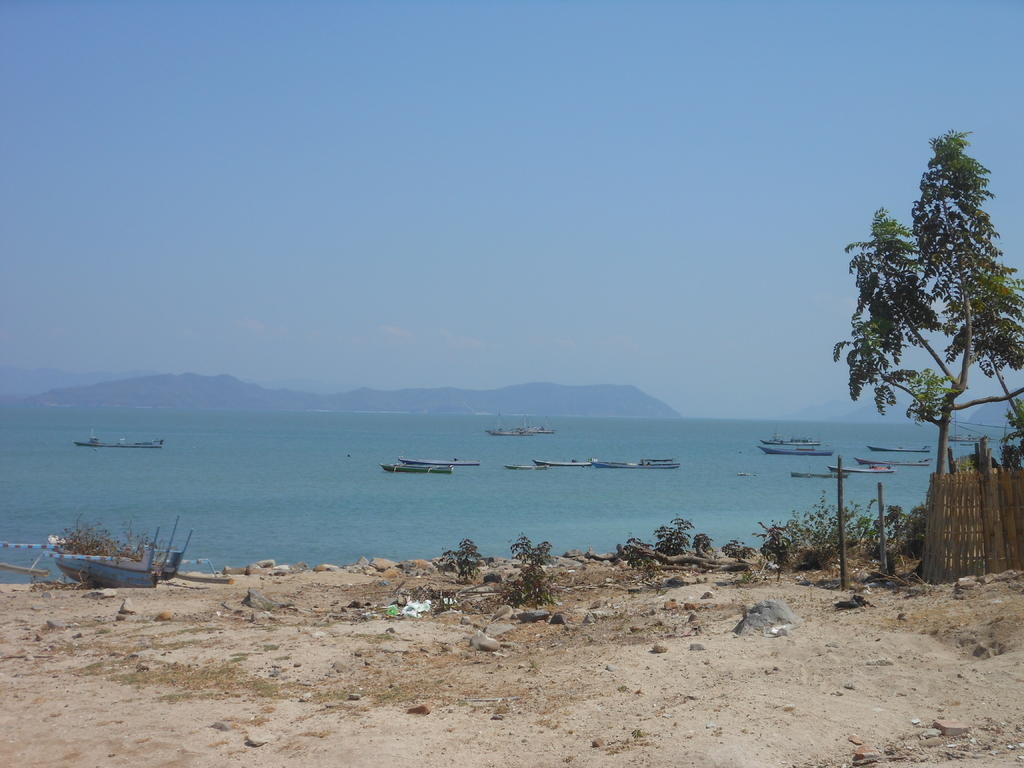
I needed a break so pulled in to a warung for a coffee. A handful of people were busy skinning garlic and onions, preparing food for a selamatan. Warm smiles and friendly conversation are staples on the menu at these roadside halts and before long the neighbours appeared and some good-natured joshing took place. The woman who made my coffee was a widow: Was I looking for a wife? I explained that I already had a wife waiting my return. "No matter", they joked, "have a wife in Sumbawa and one in Lombok. Best of both worlds!" Photos were duly taken and I was on my way again.
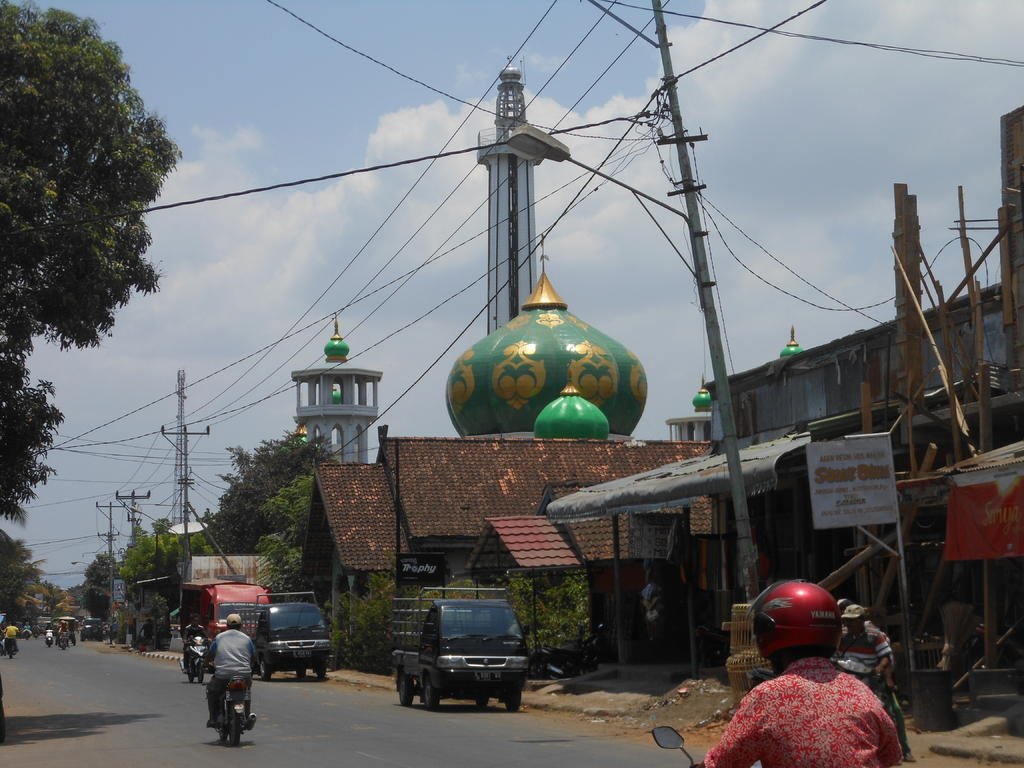
The road took me to the coast again. The far shore of the bay played host to a jagged range of hills above which rose the smoke of distant fires. The first signs of tourist activity appeared - a crude statue of a surfer atop a plinth proclaiming: "Lakey Peak." I spotted the gateway to Monalisa Homestay and rode on in. Robbie, the manager, greeted me like an old friend and directed me to a bungalow facing the beach. It felt good to be back. A cool shower, a change of clothes and a cold beer with which to watch the sun slide away, is a trifecta that spells "Relax and Enjoy!"
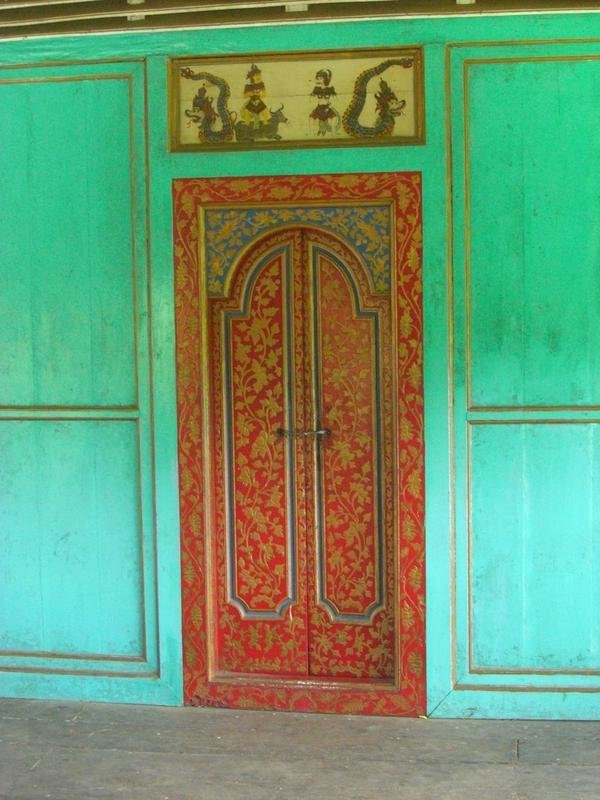
*****************************************************
Night falls quickly in the tropics. On the search for food, I made my way carefully along the walkway that ran between the strip of modest hotels and the beach. Sometime in the previous year a massive storm had wreaked havoc and entire sections of foundation and paving had been ripped up and tossed about. Locals told me it had been the worst storm in living memory. All the beach-side warungs had been flattened and had now re-located inland. Over a meal of chicken and rice at Mamma's I got a vivid description of raging seas and winds that "roared like djins." It was a frightening couple of days. Beyond the reach of the beach-side lights the water lapped, quiet and benign - until next time. I made my way back to Monalisa and fell into an effortless sleep. It had been a long day.
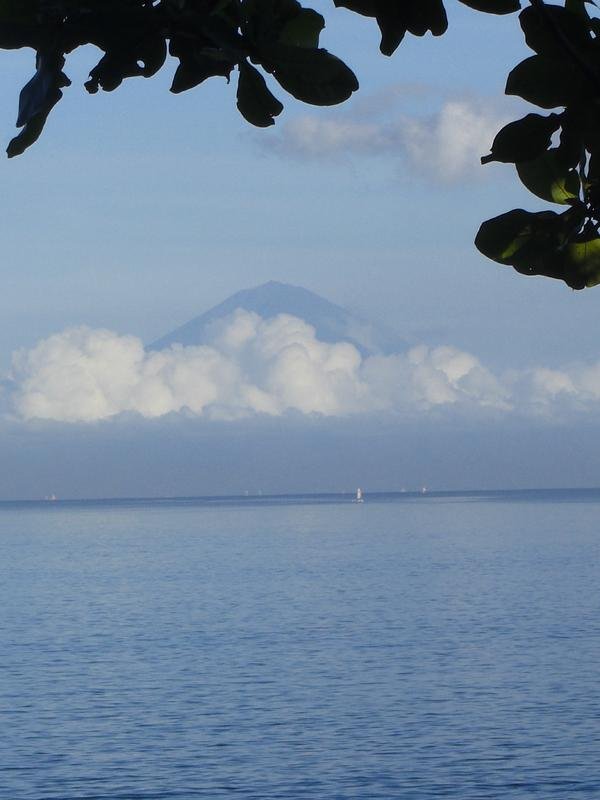
I woke at dawn, went for a swim, then took a shower. Watched by an inquisitive dog, I gave the bike the once over, adjusting and lubricating the chain and checking the tyre pressures. As a reward for his supervision, I tossed Fido the remains of some bread that I'd been toting around since the day before. He seemed quite satisfied with the exchange. Robbie reckoned there was a late afternoon ferry from Sape that would get me to Labuhanbajo around midnight - not the most ideal time to make landfall but better than spending a night in Sape. So, I packed up and loaded my gear - next stop Dompu for breakfast. I bade goodbye to Robbie, one of nature's gentlemen. A native of Flores he'd managed Monalisa for years. Ever helpful, always up-beat he made people feel welcome at his modest establishment and he never forgot a face.
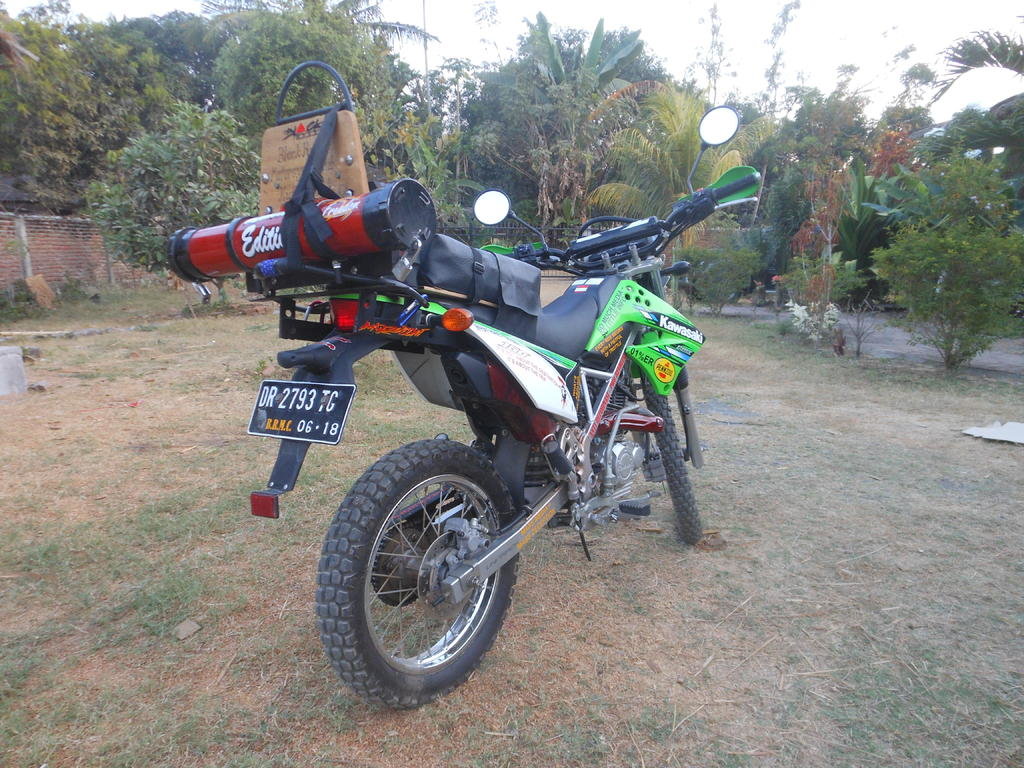
I made it to Dompu mid-morning which comes early in Indonesia - around 9.00am. At a stall near the market I tucked in to a leisurely breakfast whilst watching the comngs and goings of shoppers, traders and idlers. Mums, with pre-schoolers in tow, lugged their purchases from stall to stall. The meat delivery man arrived, a freshly slaughtered goat slung over his shoulder. Sacks of onions were being thrown from a truck onto a hand cart the size of a small truck. A cat, sporting a deformed tail, rummaged through a waste basket in competion with a swarm of blue-black flies, a dog wandered by, a truck started up and belched a stream of black exhaust skywards. A man hosed down the footpath outside his shop, a hand-rolled smoke clinging to the corner of his mouth. I drained the last dregs from my coffee. It was time to go.
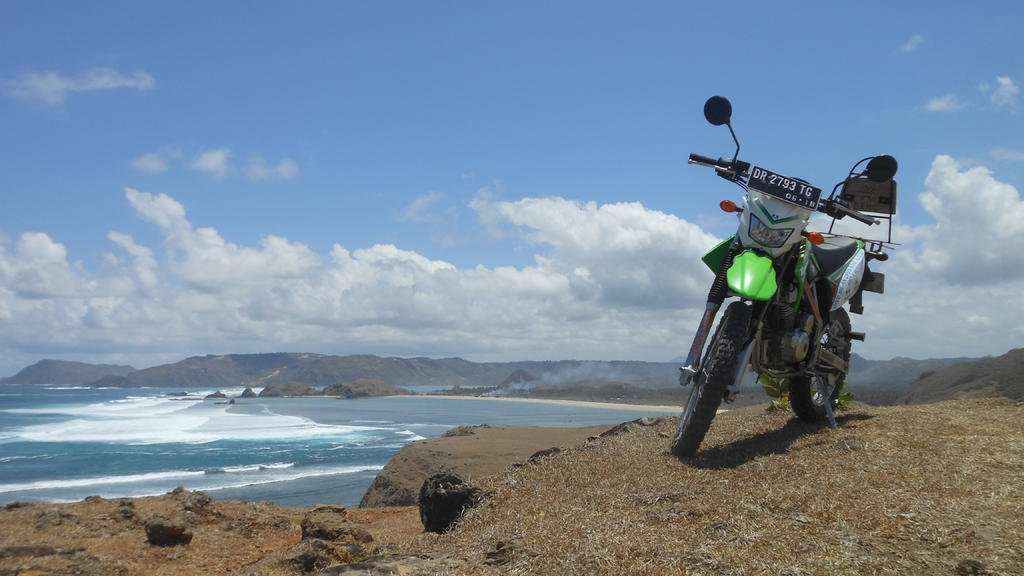
The town's one-way system disgorged me onto the Bima road and I soon found myself in open country. A series of sweeping bends carried me beyond a range of low hills to a broad coastal plain. Light traffic and a wide, straight highway made for good progress. Before long I was in salt making country. Flatland, criss-crossed with bunds, which the Indonesians call 'pematang', stretched to the coast. Between these artificially created ponds lay pyramids of harvested salt. Sparkling, crystaline, white, they glistened in the mid-morning light, stark contrast to the cracked brown earth of the bunds and dried out evaporation pools. All around the landscape was dotted with little huts where the workers could take shelter from the fierce midday heat. At the roadside stacks of white woven-plastic sacks of harvested salt lay awaiting collection. My boots crunched on the gravel as I made my way towards my parked bike. Surrounded by silence I put on my helmet and gloves, fired up the motor and engaged first gear - time to get moving again.
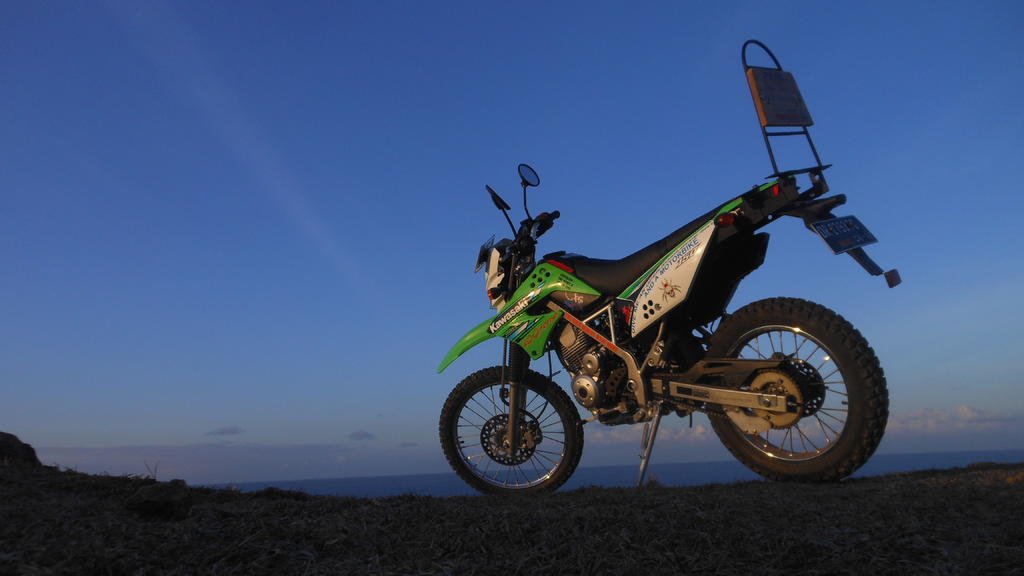
Time on my side, I was just cruising the smooth, broad, highway. With no apparent dangers I took in the scenery. Passing riders waved and when a couple of guys on a 250cc Honda overtook me they gave me the thumbs up. Around midday Bima Bay appeared. This long, narrow inlet, barely 400m wide where it met the open sea, had provided safe harbour for seafarers since ancient times. Its normally placid surface was being whipped up by a stiff onshore breeze. Fishing boats at anchor bobbed and swayed, powerless to resist the assault of the whitecaps. A massive cargo ship lay close to shore its crew busy painting the superstructure. I found a short track, which ended at a low wall adjacent to the sea, and dismounted. I took a few photos and before long was joined by a pretty, young woman. She was dressed in riding gear and had been having a coffee at a nearby stall when I pulled up. Manda was her name and she'd just returned from a ride to Surabaya where she'd visited her grandparents. She was riding a 200cc Honda Tiger, most unusual, as the vast majority of Indonesian women rode scooters. I commented on this and she replied: "My Dad encourages me to be independent and self-reliant. He wants me to forge my own path." I took a couple of photos of Manda posing with my bike, Bima Bay looking on. The wind ruffled her thick, black hair. She tossed her head so as to free up her face for the photo. What a pleasant way to while away a few minutes.
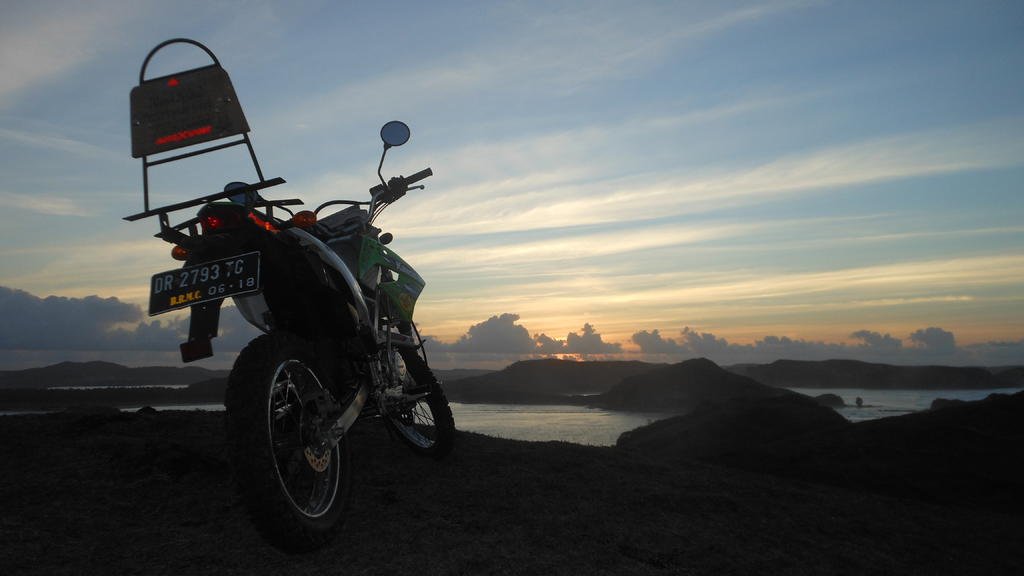
I set off again for Bima town barely thirty minutes away. My stomach told me it was lunchtime so I was on the lookout for a suitable eatery. Turning left at a tee-intersection I saw it; "Bakso Favorit" proclaimed the large professionally painred sign on a brick wall. I pulled up in the shade beneath an awning that sheltered the forecourt. Dining was alfresco and the place was humming. The crew, dressed in matching black pants and orange tee-shirts emblazoned, "Bakso Favorit", buzzed around like wasps on steroids, serving food, cleaning tables, shouting out orders to the kitchen staff, all the while laughing and joking with customers. I took a seat at a long table. The customers were mostly neatly dressed office staff with a sprinkling of women with their young kids. I ordered chicken soup and a glass of hot orange. A couple of minutes later my order appeared - a big bowl of piping hot soup with lashings of shredded chicken, bean shoots, fried onion flakes, spring onion and a fried boiled egg swimming in the most delicious spicy liquid. I ate with gusto. The hot orange served in a huge glass, with plenty of sugar, was so good I downed it and ordered another. My appetite was sated and my thirst slaked; when I threw my leg over the bike I felt ready to take on the world!
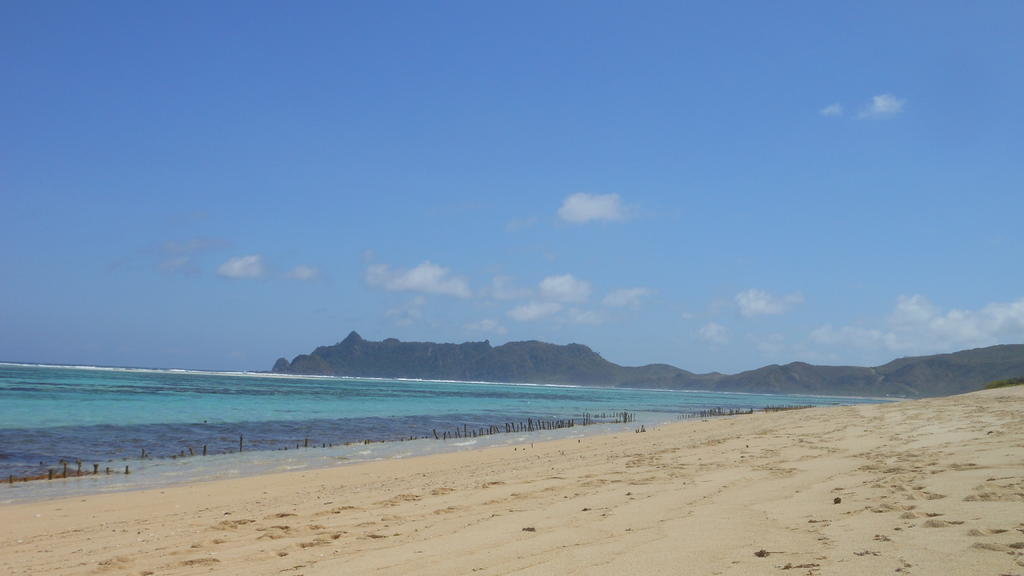
*****************************************************************
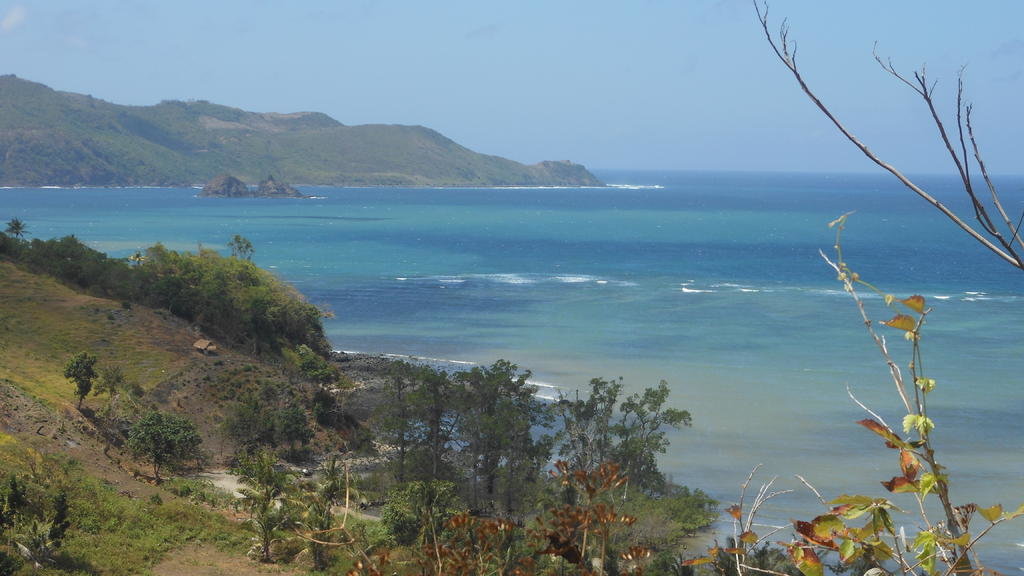
From Bima to Sape was a leisurely two hour ride that climbed and dipped through a range of hills interlaced with deep green valleys. Passing through a forest I came face to face with a group of gamboling macaques being fed by passengers who were throwing fruit from their parked bus. The monkeys formed a roiling, rolling scrum of flying limbs and whipping tails, each morsel an object of intense desire. As soon as a prize was snared the winner would scurry off only to be confronted by would-be stand over merchants. Bared fangs and malevolent grimaces sometimes saw the muscle men off, but, more often, the fruit would be dropped in order to avoid a savage mauling; the alpha male had the cold, emotionless eyes of a serial killer. I have no trust in monkeys that have become used to human contact having seen them operate in Ubud's monkey forest where they now roam in plague proportions. When the bus food ran out a couple of the bigger, bolder ones approached me; I left them eating dust.
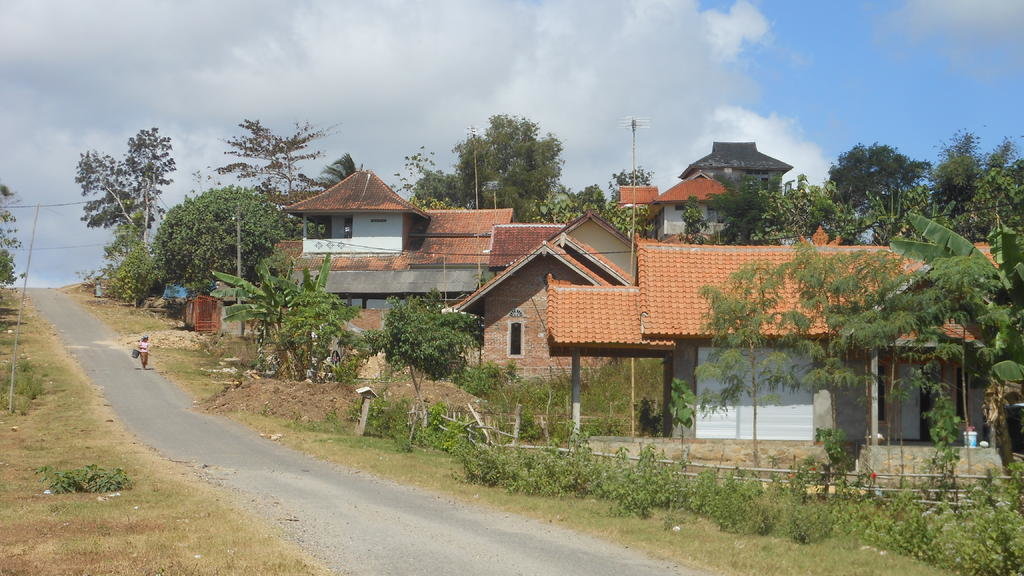
The ferry to Flores takes six hours and leaves from Sape which means 'cow'. This little cattle-exporting port is peopled by Bugis settlers from South Sulawesi. Famous seafarers, and boat builders, they still ply their skills in the town, fishing and hand crafting their magnificent pinisi schooners. For centuries they sailed from Makassar in South Sulawesi to the Gulf of Carpenteria, in northern Australia, to collect teripang or sea cucumber, a delicacy among the Chinese. These adventurers would sail on the south-east monsoon, spend months collecting and smoking their bounty and then return on the north west winds with their prize. They established friendly relations with the Aborigines, took Aborigines back to Makassar and only withdrew from this trade in 1903 when the new formed Commonwealth Government put a stop to it.
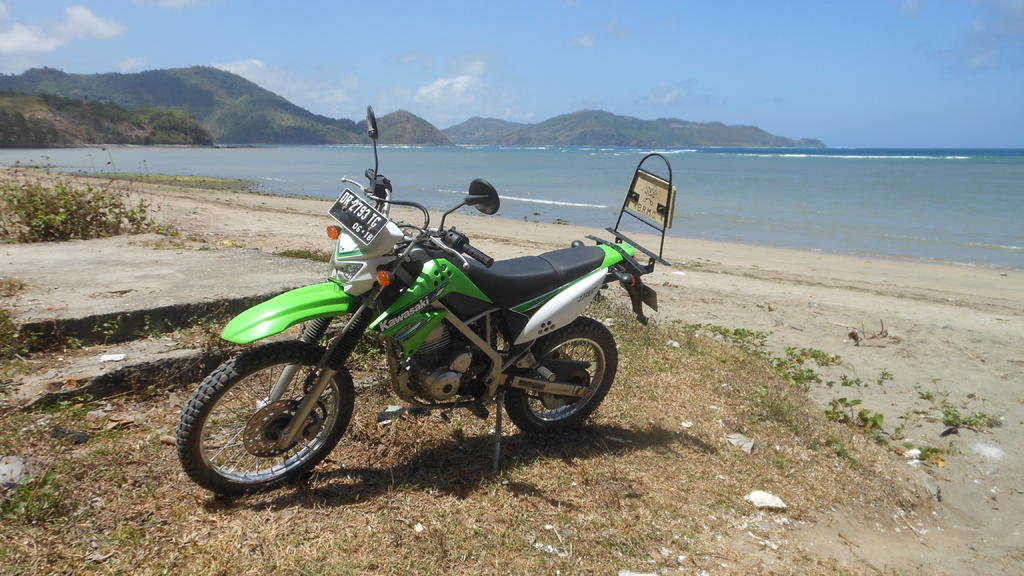
Sape 3.00 pm. I pulled in for juice at a brand new servo near the port. The young woman at the pump informed me that the ferry would leave at five. Robbie had been right about a late afternoon ferry and when I breezed through the port gates there it was at the quayside. I paid my AUD$18 for a ticket and rode aboard.
Up on deck I found vacant set of seats, stowed my gear and made myself comfortable. A few minutes later, to my surprise, a couple of Caucasian faces emerged from the stairwell that led to the vehicle deck. They belonged to Marta and Veronica, a mother and daughter double-act, who were spending a month cruising around Indonesia. from the outset I knew they'd be interesting company. They wanted to see the Komodo dragons. Air fares from Denpasar to Labuhanbajo were beyond their means so, they'd got a cheap flight to Bima and taken a bus from there to Sape - problem solved. I admired their pluck. They knew no Indonesian and Marta spoke little English. Veronica was fluent having just spent a year backpacking and working in Australia. The tales she told of unscrupulous employers ripping off backpackers did not surprise me. Forced to spend 88 days working in remote or regional areas if they want to extend their visas for six months, backpackers are like lambs to the slaughter for some. In Tasmania veronica worked at an orchard where 24 youngsters were charged $100 a week each to share two dorms that were freezing cold. The hot water service was totally inadequate for the two showers and they had to supply their own blankets. The rent was paid in cash and no receipts were given. $2400 per week tax free - a nice little earner.
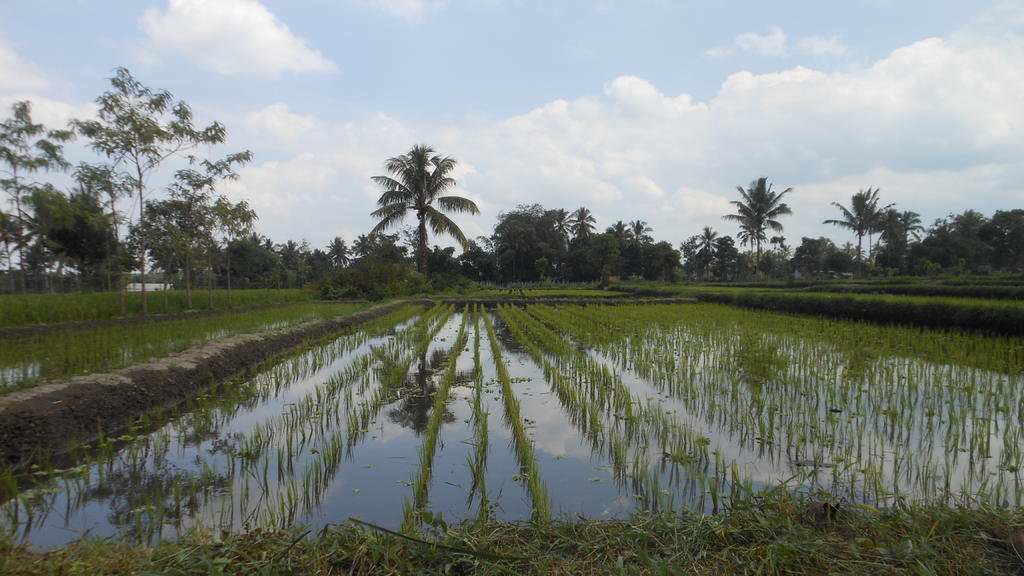
At around six our ferry pulled away from the dock. Water taxis chugged by carrying passeners and cargo to a stilt village across the inlet. Large fishing boats and perahus, with outriggers extending ten metres either side, rested on the placid waters. As we sailed east the sun sank lower bathing the sky in a golden radiance which changed by the minute - tangerine, then orange, deeper orange, red, blood red, violet; the day was put to rest.
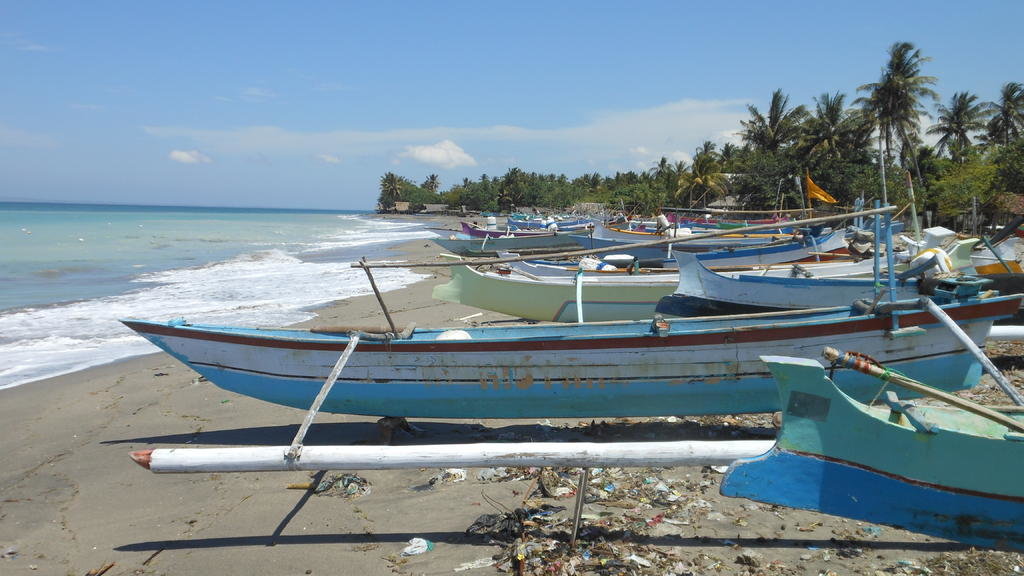
We sailed over a quiet sea. The lights of Sape disappeared to stern, stars blinked overhead and a crescent moon - silver scimitar of the sky - continued on its endless journey. My fellow passengers, for the most part, slept. Some sprawled out on the seats, sarongs drawn up over heads; others dossed down on the deck atop woven cane mats. I watched a cockroach snuffle through a pile of discarded peanut shells until it lost interest and returned to the home comforts of its drain. Vendors made desultory attempts to sell their wares, moving from passenger to passenger more by force of habit than genuine hope. Marta and Veronica sat, knees up, back to back on the bench seat in front of me chasing sleep. Lulled by the steady vibration of the engine and the rhythmic swish of sea against the prow I entered the twilight zone, semi-aware of my surroundings, not sure if my stream of consciousness was real or if a was dreaming.
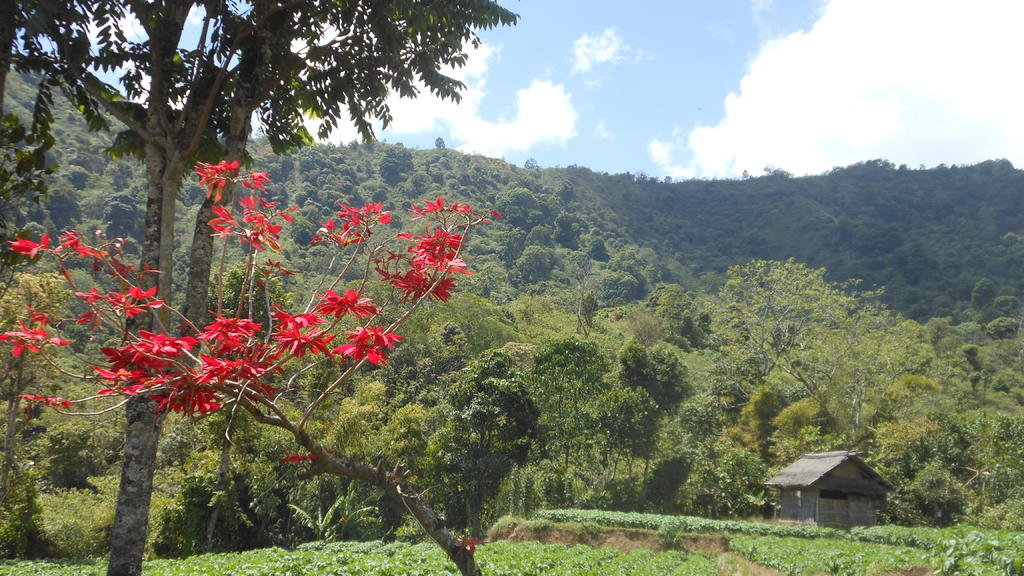
It was midnight when we docked in Labuanbajo - 'the port of the sea-gypsies'. I felt less than half-human. The town was asleep. Marta and Veronica disembarked and went to look for the Bajo Beach Hotel which was supposed to be near the port. I had to wait until I could retrieve my bike. I could just see its mirrors poking up from behind a Giza-like pyramid of sacked onions. I waited patiently for them to be loaded onto a pick up by a team of sweating navvies. Once clear I geared up, ascended the ramp and entered the deserted main street, accompanied only by the cackle of my exhaust: Labuhanbajo was sleeping.
I spotted Marta and Veronica standing beneath a street lamp looking forlorn. They couldn't find the hotel and everywhere else was shut for the night - it was low season after all. I told them to sit tight and await my return. I did a quick recce of the main drag scanning the myriad signs advertising restaurants, dive shops, tourist services, fishing tours, dragon spotting, hotels - but no Bajo Beach hotel and no sign of life either.
On the return trip I spotted the "Hotel Komodo Indah" a short distance from where I'd left Marta and Veronica. I parked the bike out front and opened the door. I expected to find a sleeping peon behind the desk but when I stared over the top, bare grimy floor tiles stared back at me. I called out and the hollow sound of my voice mocked my optimism. Even the Bates Hotel had more life to it. I ventured down the hall and tried a door. It was locked so, I tried another: also locked.
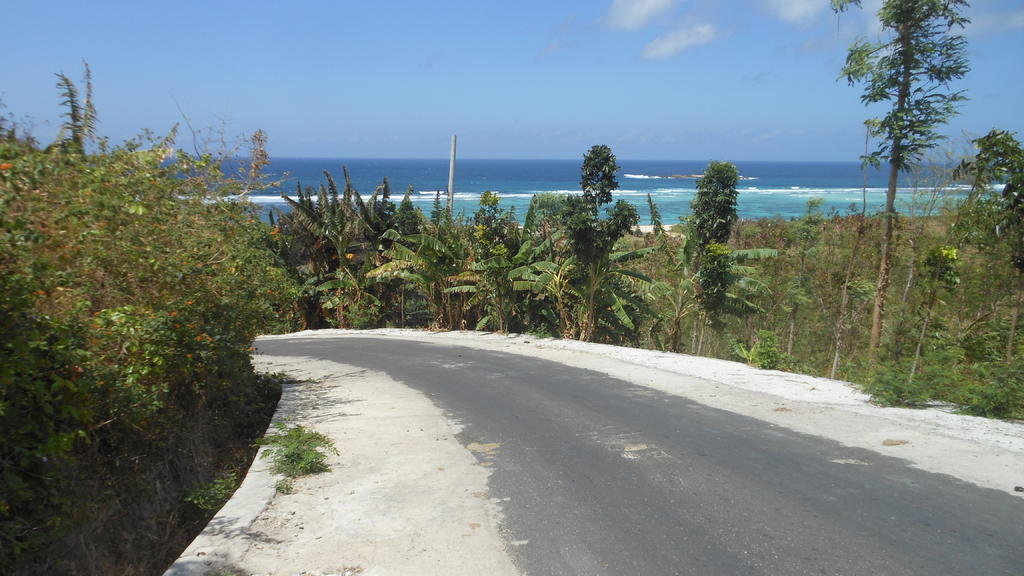
I found the stairs to the first floor ventured up. The first room I tried opened. By the light from the hall I could see it was unoccupied. I found the light switch. It revealed a double bed with mattress sans sheet. Stains of various hue and provenance were concentrated in the expected locations. There was probably enough DNA to keep a lab in work for a month. I went to the next room. It was better, if you could call an airless cell with no windows better. Two single beds with sheets, grayish in colour, but smelling clean, no furniture and an attached bathroom and toilet in fair shape. I figured the women would bed down here for the night. I checked the room overlooking the street - at least it had a window. There was a double bed and a mattress even dodgier than the first; fortunately, I had a ground sheet to take care of that problem.
I returned to Marta and Veronica with the news. They picked up their bags and followed me. I took Veronica upstairs to examine the room. She took a nano-second to come to a decision. "My mother would never sleep here!" she exclaimed vehemently. She spun on her heel and exited the room as if frightened she might catch the bubonic plague - or worse. I felt a little chastened, but couldn't decide whether my expectation that they might take the room was considered to be a slur on their character or mine. Without a hint of irony Marta said, "Let's return to the lobby and decide what to do." As we trundled downstairs I knew what I was going to do.
Marta and Veronica had a short, sharp conversation in Spanish before Veronica turned to me and asked, "What are you going to do?" It was past 1.00am and I was dog-tired. I felt less than chivalrous abandoning them in this sleeping town but I was past caring. This was a hotel. There were beds, the door could be bolted from the inside, I was sleeping across the hall from them; they would be safe. There is a time and a place for squeamishness but this was neither. "I'm sleeping here, I announced flatly. I didn't have to add, 'You can do what you like.' They could work that out for themselves. I went outside and unhooked my gear from the bike. Marta and Veronica began trudging up the main street because there was nothing else to do. I never saw them again.
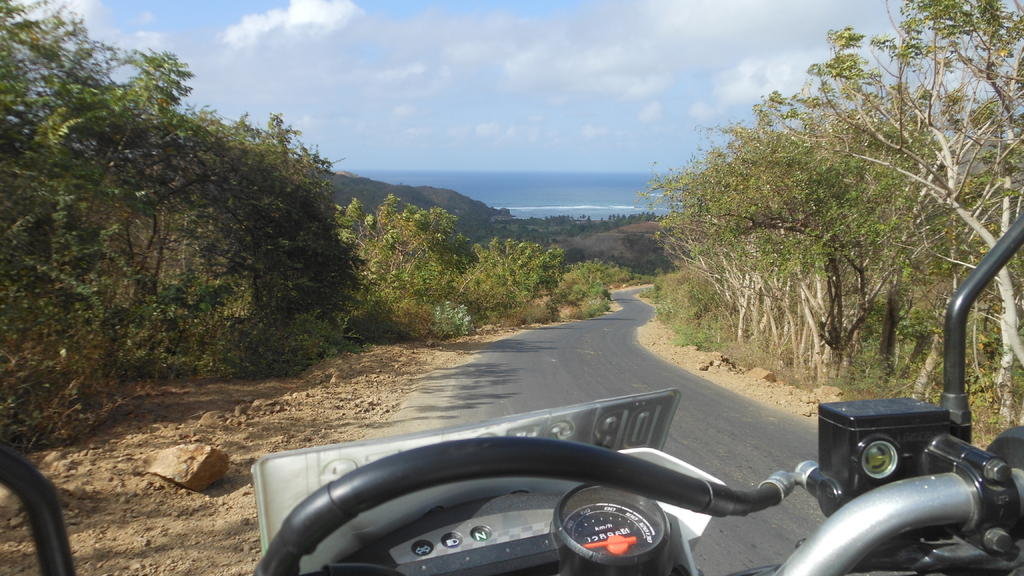
I went back upstairs, threw my gear in the room with sheets, switched on the fan and undressed. What I wanted more than anything was to feel cool, clean water cascading over my body, washing away the patina of the day's traveling that clung to me like a second skin. I turned on the bathroom tap. There was a gurgle, then a hiss of escaping air, then a splutter. A trikle of rust-coloured water mocked my optimism. "Don't you realise?", it was saying, "This hotel has been abandoned. The owner fled east after his wife caught him in flagrante delecto with the house boy. There's no staff here. Nothing works. This is a non-hotel." Disgusted, I flopped on the bed exhausted. A minute later the fan stopped working. It was not long before the room heated up. I tossed and turned and played the atheist's last throw of the dice - prayer; sleep came after a struggle.
I woke with a start, the room filled with noise. A mosque next door! It was 4.30 am and the muezzin was marshalling the faithful. He seemed to relish his work. Like many, who cannot and could never sing, he'd taken for real the praise of those of his felows who were too polite to confront him with his inadequacies. When he finished his toneless droning, I made a delusional attempt to return to the land of nod but soon threw in the towel. I found a bathroom down the hall. It's bak mandi, or water container, was half full so I sluiced away the shroud of drowse that enveloped me with bucket loads of cool water. I was on my way east again before sunup.
Flores - the island of a zillion flowers, a million bends and barely a kilometre of straight road. Colonised by the Portuguese in the 16th century 95% of the population is staunchly Catholic. Religious practice is a syncretic mix of local custom and traditional beliefs. The island's mountainous spine boasts fourteen active volcanoes and countless dormant ones waiting to spring to life again. The main road east is narrow. It twists and turns and climbs and dips. Hair pins are so tight and narrow you often find yourself dropping down into first to negotiate them both descending and ascending. The nature of the road brings out a sense of fellowship among the riders. Everyone waves or toots as they pass. If you stop for a break, others stop too to inquire if you're OK.
The early morning air was brisk enough to jolt me into wakefulness, Just as well as the road demanded total concentration. An hour or so in to the day's ride and I came across a major disaster. A monster 18 tonne tray truck had failed to take a sharp downhill corner. It had gone straight on over the edge and now lay, stranded on its side in a tangle of greenery, ten metres below the surface of the road. Fortunately no one was badly injured. The driver was on the phone to hos boss - not a pleasant conversation to have, I imagine. In such a situation it could be weeks before the truck could be salvaged, if it could be salvaged at all.
As the morning wore on I realised I needed to charge my phone. I was out in the sticks but it wasn't long before I spotted a wooden shack whose wall housed a hoarding advertising cell phones. I pulled up and explained my predicament to the owner. "No problem, you can charge here," He invited me to sit on the veranda. Soon all the family gathered. "Have you had breakfast?" I was given delicious coffee and banana fritters to eat while waiting for the phone to charge. Luis's daughter, Rosaria, had just given birth to a boy. He was only two days old and they had yet to name him. Out he came wrapped in a blanket, lots of black hair, big eyes and chocolate skin. "Do you have a name for him?" I was asked. I thought for a moment. I'd always liked the name Luke. "What about Lucas," I suggested. They began voicing the name among themselves. "Yes, that sounds good. We'll talk it over with the priest. I'm sure he will like the name too."
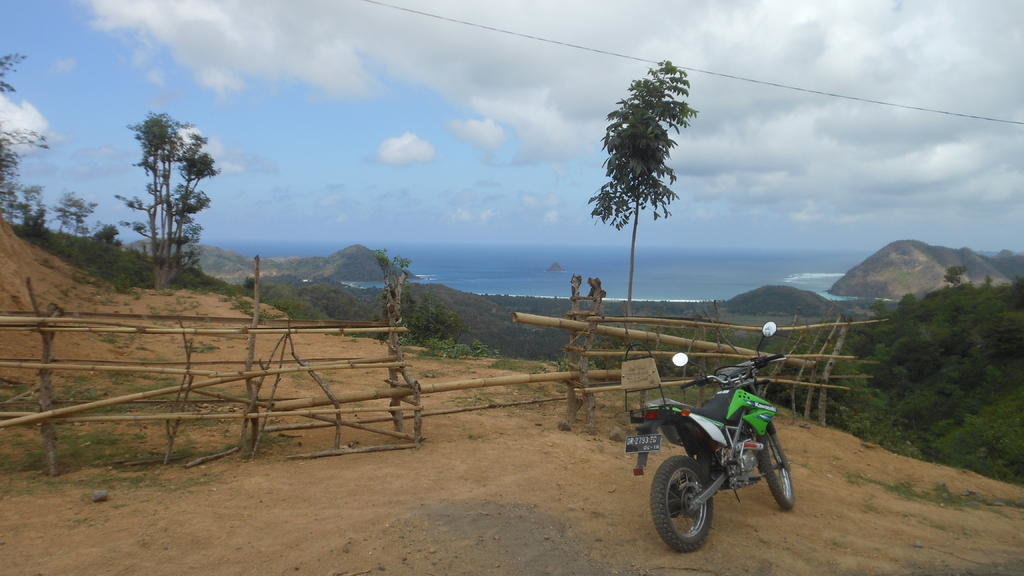
The mountains stretched to the horizon, the volcanoes marched to the coast, the flowers blanketed the roadsides and the candlenut trees bathed the hillsides with their sugar-coated greenery. What a joy it was to ride that road east. I skirted pristine beaches, I passed through forests of giant bamboo, plunged down canyons to cross rock-strewn river bed via narrow bridges and climbed up again into the clouds to reach upland savannahs where, briefly, the road would straighten before continuing its sinuous journey to Bajawa. I reached the town in the late afternoon and found the perfect place to stay: Lucas Authentic Homestay and Resaurant. There was a secure spot to park the bike, the room was sparkling new, the restaurant had an extensive menu and the staff had friendly smiles. What more could a rider want after a day's travel across an island wonderland? And the beauty of it all? - there was still more to come!

I motored through Soriuti and made my way towards Dompu. Fields of rich green padi, criss-crossed with scare lines festooned with plastic bags, bordered the road. Before long I reached the outskirts of Dompu town; onion-domed mosques dotted the skyline. I wove through the narrow streets adjacent the market, the cackle of my exhaust mixing with the clip-clop of horse drawn dokars. I kept a sharp eye out for the road signs that would guide me to the bridge across the river and the road to Hu'u beach.

I was now deep into the afternoon and I caught myself daydreaming instead of concentrating on the road - a sure sign tiredness was kicking in. Forty kilometres to go. I motored through teak forests, farmland and scrub, only seeing the occasional vehicle but encountering numerous herds of wandering goats. I passed by Bugis settlements, with their characteristic stilt houses perched above the sea, boats pulled up on the beach, nets drying in the sun and corn cobs roasting on open fires.

I needed a break so pulled in to a warung for a coffee. A handful of people were busy skinning garlic and onions, preparing food for a selamatan. Warm smiles and friendly conversation are staples on the menu at these roadside halts and before long the neighbours appeared and some good-natured joshing took place. The woman who made my coffee was a widow: Was I looking for a wife? I explained that I already had a wife waiting my return. "No matter", they joked, "have a wife in Sumbawa and one in Lombok. Best of both worlds!" Photos were duly taken and I was on my way again.

The road took me to the coast again. The far shore of the bay played host to a jagged range of hills above which rose the smoke of distant fires. The first signs of tourist activity appeared - a crude statue of a surfer atop a plinth proclaiming: "Lakey Peak." I spotted the gateway to Monalisa Homestay and rode on in. Robbie, the manager, greeted me like an old friend and directed me to a bungalow facing the beach. It felt good to be back. A cool shower, a change of clothes and a cold beer with which to watch the sun slide away, is a trifecta that spells "Relax and Enjoy!"

*****************************************************
Night falls quickly in the tropics. On the search for food, I made my way carefully along the walkway that ran between the strip of modest hotels and the beach. Sometime in the previous year a massive storm had wreaked havoc and entire sections of foundation and paving had been ripped up and tossed about. Locals told me it had been the worst storm in living memory. All the beach-side warungs had been flattened and had now re-located inland. Over a meal of chicken and rice at Mamma's I got a vivid description of raging seas and winds that "roared like djins." It was a frightening couple of days. Beyond the reach of the beach-side lights the water lapped, quiet and benign - until next time. I made my way back to Monalisa and fell into an effortless sleep. It had been a long day.

I woke at dawn, went for a swim, then took a shower. Watched by an inquisitive dog, I gave the bike the once over, adjusting and lubricating the chain and checking the tyre pressures. As a reward for his supervision, I tossed Fido the remains of some bread that I'd been toting around since the day before. He seemed quite satisfied with the exchange. Robbie reckoned there was a late afternoon ferry from Sape that would get me to Labuhanbajo around midnight - not the most ideal time to make landfall but better than spending a night in Sape. So, I packed up and loaded my gear - next stop Dompu for breakfast. I bade goodbye to Robbie, one of nature's gentlemen. A native of Flores he'd managed Monalisa for years. Ever helpful, always up-beat he made people feel welcome at his modest establishment and he never forgot a face.

I made it to Dompu mid-morning which comes early in Indonesia - around 9.00am. At a stall near the market I tucked in to a leisurely breakfast whilst watching the comngs and goings of shoppers, traders and idlers. Mums, with pre-schoolers in tow, lugged their purchases from stall to stall. The meat delivery man arrived, a freshly slaughtered goat slung over his shoulder. Sacks of onions were being thrown from a truck onto a hand cart the size of a small truck. A cat, sporting a deformed tail, rummaged through a waste basket in competion with a swarm of blue-black flies, a dog wandered by, a truck started up and belched a stream of black exhaust skywards. A man hosed down the footpath outside his shop, a hand-rolled smoke clinging to the corner of his mouth. I drained the last dregs from my coffee. It was time to go.

The town's one-way system disgorged me onto the Bima road and I soon found myself in open country. A series of sweeping bends carried me beyond a range of low hills to a broad coastal plain. Light traffic and a wide, straight highway made for good progress. Before long I was in salt making country. Flatland, criss-crossed with bunds, which the Indonesians call 'pematang', stretched to the coast. Between these artificially created ponds lay pyramids of harvested salt. Sparkling, crystaline, white, they glistened in the mid-morning light, stark contrast to the cracked brown earth of the bunds and dried out evaporation pools. All around the landscape was dotted with little huts where the workers could take shelter from the fierce midday heat. At the roadside stacks of white woven-plastic sacks of harvested salt lay awaiting collection. My boots crunched on the gravel as I made my way towards my parked bike. Surrounded by silence I put on my helmet and gloves, fired up the motor and engaged first gear - time to get moving again.

Time on my side, I was just cruising the smooth, broad, highway. With no apparent dangers I took in the scenery. Passing riders waved and when a couple of guys on a 250cc Honda overtook me they gave me the thumbs up. Around midday Bima Bay appeared. This long, narrow inlet, barely 400m wide where it met the open sea, had provided safe harbour for seafarers since ancient times. Its normally placid surface was being whipped up by a stiff onshore breeze. Fishing boats at anchor bobbed and swayed, powerless to resist the assault of the whitecaps. A massive cargo ship lay close to shore its crew busy painting the superstructure. I found a short track, which ended at a low wall adjacent to the sea, and dismounted. I took a few photos and before long was joined by a pretty, young woman. She was dressed in riding gear and had been having a coffee at a nearby stall when I pulled up. Manda was her name and she'd just returned from a ride to Surabaya where she'd visited her grandparents. She was riding a 200cc Honda Tiger, most unusual, as the vast majority of Indonesian women rode scooters. I commented on this and she replied: "My Dad encourages me to be independent and self-reliant. He wants me to forge my own path." I took a couple of photos of Manda posing with my bike, Bima Bay looking on. The wind ruffled her thick, black hair. She tossed her head so as to free up her face for the photo. What a pleasant way to while away a few minutes.

I set off again for Bima town barely thirty minutes away. My stomach told me it was lunchtime so I was on the lookout for a suitable eatery. Turning left at a tee-intersection I saw it; "Bakso Favorit" proclaimed the large professionally painred sign on a brick wall. I pulled up in the shade beneath an awning that sheltered the forecourt. Dining was alfresco and the place was humming. The crew, dressed in matching black pants and orange tee-shirts emblazoned, "Bakso Favorit", buzzed around like wasps on steroids, serving food, cleaning tables, shouting out orders to the kitchen staff, all the while laughing and joking with customers. I took a seat at a long table. The customers were mostly neatly dressed office staff with a sprinkling of women with their young kids. I ordered chicken soup and a glass of hot orange. A couple of minutes later my order appeared - a big bowl of piping hot soup with lashings of shredded chicken, bean shoots, fried onion flakes, spring onion and a fried boiled egg swimming in the most delicious spicy liquid. I ate with gusto. The hot orange served in a huge glass, with plenty of sugar, was so good I downed it and ordered another. My appetite was sated and my thirst slaked; when I threw my leg over the bike I felt ready to take on the world!

*****************************************************************

From Bima to Sape was a leisurely two hour ride that climbed and dipped through a range of hills interlaced with deep green valleys. Passing through a forest I came face to face with a group of gamboling macaques being fed by passengers who were throwing fruit from their parked bus. The monkeys formed a roiling, rolling scrum of flying limbs and whipping tails, each morsel an object of intense desire. As soon as a prize was snared the winner would scurry off only to be confronted by would-be stand over merchants. Bared fangs and malevolent grimaces sometimes saw the muscle men off, but, more often, the fruit would be dropped in order to avoid a savage mauling; the alpha male had the cold, emotionless eyes of a serial killer. I have no trust in monkeys that have become used to human contact having seen them operate in Ubud's monkey forest where they now roam in plague proportions. When the bus food ran out a couple of the bigger, bolder ones approached me; I left them eating dust.

The ferry to Flores takes six hours and leaves from Sape which means 'cow'. This little cattle-exporting port is peopled by Bugis settlers from South Sulawesi. Famous seafarers, and boat builders, they still ply their skills in the town, fishing and hand crafting their magnificent pinisi schooners. For centuries they sailed from Makassar in South Sulawesi to the Gulf of Carpenteria, in northern Australia, to collect teripang or sea cucumber, a delicacy among the Chinese. These adventurers would sail on the south-east monsoon, spend months collecting and smoking their bounty and then return on the north west winds with their prize. They established friendly relations with the Aborigines, took Aborigines back to Makassar and only withdrew from this trade in 1903 when the new formed Commonwealth Government put a stop to it.

Sape 3.00 pm. I pulled in for juice at a brand new servo near the port. The young woman at the pump informed me that the ferry would leave at five. Robbie had been right about a late afternoon ferry and when I breezed through the port gates there it was at the quayside. I paid my AUD$18 for a ticket and rode aboard.
Up on deck I found vacant set of seats, stowed my gear and made myself comfortable. A few minutes later, to my surprise, a couple of Caucasian faces emerged from the stairwell that led to the vehicle deck. They belonged to Marta and Veronica, a mother and daughter double-act, who were spending a month cruising around Indonesia. from the outset I knew they'd be interesting company. They wanted to see the Komodo dragons. Air fares from Denpasar to Labuhanbajo were beyond their means so, they'd got a cheap flight to Bima and taken a bus from there to Sape - problem solved. I admired their pluck. They knew no Indonesian and Marta spoke little English. Veronica was fluent having just spent a year backpacking and working in Australia. The tales she told of unscrupulous employers ripping off backpackers did not surprise me. Forced to spend 88 days working in remote or regional areas if they want to extend their visas for six months, backpackers are like lambs to the slaughter for some. In Tasmania veronica worked at an orchard where 24 youngsters were charged $100 a week each to share two dorms that were freezing cold. The hot water service was totally inadequate for the two showers and they had to supply their own blankets. The rent was paid in cash and no receipts were given. $2400 per week tax free - a nice little earner.

At around six our ferry pulled away from the dock. Water taxis chugged by carrying passeners and cargo to a stilt village across the inlet. Large fishing boats and perahus, with outriggers extending ten metres either side, rested on the placid waters. As we sailed east the sun sank lower bathing the sky in a golden radiance which changed by the minute - tangerine, then orange, deeper orange, red, blood red, violet; the day was put to rest.

We sailed over a quiet sea. The lights of Sape disappeared to stern, stars blinked overhead and a crescent moon - silver scimitar of the sky - continued on its endless journey. My fellow passengers, for the most part, slept. Some sprawled out on the seats, sarongs drawn up over heads; others dossed down on the deck atop woven cane mats. I watched a cockroach snuffle through a pile of discarded peanut shells until it lost interest and returned to the home comforts of its drain. Vendors made desultory attempts to sell their wares, moving from passenger to passenger more by force of habit than genuine hope. Marta and Veronica sat, knees up, back to back on the bench seat in front of me chasing sleep. Lulled by the steady vibration of the engine and the rhythmic swish of sea against the prow I entered the twilight zone, semi-aware of my surroundings, not sure if my stream of consciousness was real or if a was dreaming.

It was midnight when we docked in Labuanbajo - 'the port of the sea-gypsies'. I felt less than half-human. The town was asleep. Marta and Veronica disembarked and went to look for the Bajo Beach Hotel which was supposed to be near the port. I had to wait until I could retrieve my bike. I could just see its mirrors poking up from behind a Giza-like pyramid of sacked onions. I waited patiently for them to be loaded onto a pick up by a team of sweating navvies. Once clear I geared up, ascended the ramp and entered the deserted main street, accompanied only by the cackle of my exhaust: Labuhanbajo was sleeping.
I spotted Marta and Veronica standing beneath a street lamp looking forlorn. They couldn't find the hotel and everywhere else was shut for the night - it was low season after all. I told them to sit tight and await my return. I did a quick recce of the main drag scanning the myriad signs advertising restaurants, dive shops, tourist services, fishing tours, dragon spotting, hotels - but no Bajo Beach hotel and no sign of life either.
On the return trip I spotted the "Hotel Komodo Indah" a short distance from where I'd left Marta and Veronica. I parked the bike out front and opened the door. I expected to find a sleeping peon behind the desk but when I stared over the top, bare grimy floor tiles stared back at me. I called out and the hollow sound of my voice mocked my optimism. Even the Bates Hotel had more life to it. I ventured down the hall and tried a door. It was locked so, I tried another: also locked.

I found the stairs to the first floor ventured up. The first room I tried opened. By the light from the hall I could see it was unoccupied. I found the light switch. It revealed a double bed with mattress sans sheet. Stains of various hue and provenance were concentrated in the expected locations. There was probably enough DNA to keep a lab in work for a month. I went to the next room. It was better, if you could call an airless cell with no windows better. Two single beds with sheets, grayish in colour, but smelling clean, no furniture and an attached bathroom and toilet in fair shape. I figured the women would bed down here for the night. I checked the room overlooking the street - at least it had a window. There was a double bed and a mattress even dodgier than the first; fortunately, I had a ground sheet to take care of that problem.
I returned to Marta and Veronica with the news. They picked up their bags and followed me. I took Veronica upstairs to examine the room. She took a nano-second to come to a decision. "My mother would never sleep here!" she exclaimed vehemently. She spun on her heel and exited the room as if frightened she might catch the bubonic plague - or worse. I felt a little chastened, but couldn't decide whether my expectation that they might take the room was considered to be a slur on their character or mine. Without a hint of irony Marta said, "Let's return to the lobby and decide what to do." As we trundled downstairs I knew what I was going to do.
Marta and Veronica had a short, sharp conversation in Spanish before Veronica turned to me and asked, "What are you going to do?" It was past 1.00am and I was dog-tired. I felt less than chivalrous abandoning them in this sleeping town but I was past caring. This was a hotel. There were beds, the door could be bolted from the inside, I was sleeping across the hall from them; they would be safe. There is a time and a place for squeamishness but this was neither. "I'm sleeping here, I announced flatly. I didn't have to add, 'You can do what you like.' They could work that out for themselves. I went outside and unhooked my gear from the bike. Marta and Veronica began trudging up the main street because there was nothing else to do. I never saw them again.

I went back upstairs, threw my gear in the room with sheets, switched on the fan and undressed. What I wanted more than anything was to feel cool, clean water cascading over my body, washing away the patina of the day's traveling that clung to me like a second skin. I turned on the bathroom tap. There was a gurgle, then a hiss of escaping air, then a splutter. A trikle of rust-coloured water mocked my optimism. "Don't you realise?", it was saying, "This hotel has been abandoned. The owner fled east after his wife caught him in flagrante delecto with the house boy. There's no staff here. Nothing works. This is a non-hotel." Disgusted, I flopped on the bed exhausted. A minute later the fan stopped working. It was not long before the room heated up. I tossed and turned and played the atheist's last throw of the dice - prayer; sleep came after a struggle.
I woke with a start, the room filled with noise. A mosque next door! It was 4.30 am and the muezzin was marshalling the faithful. He seemed to relish his work. Like many, who cannot and could never sing, he'd taken for real the praise of those of his felows who were too polite to confront him with his inadequacies. When he finished his toneless droning, I made a delusional attempt to return to the land of nod but soon threw in the towel. I found a bathroom down the hall. It's bak mandi, or water container, was half full so I sluiced away the shroud of drowse that enveloped me with bucket loads of cool water. I was on my way east again before sunup.
Flores - the island of a zillion flowers, a million bends and barely a kilometre of straight road. Colonised by the Portuguese in the 16th century 95% of the population is staunchly Catholic. Religious practice is a syncretic mix of local custom and traditional beliefs. The island's mountainous spine boasts fourteen active volcanoes and countless dormant ones waiting to spring to life again. The main road east is narrow. It twists and turns and climbs and dips. Hair pins are so tight and narrow you often find yourself dropping down into first to negotiate them both descending and ascending. The nature of the road brings out a sense of fellowship among the riders. Everyone waves or toots as they pass. If you stop for a break, others stop too to inquire if you're OK.
The early morning air was brisk enough to jolt me into wakefulness, Just as well as the road demanded total concentration. An hour or so in to the day's ride and I came across a major disaster. A monster 18 tonne tray truck had failed to take a sharp downhill corner. It had gone straight on over the edge and now lay, stranded on its side in a tangle of greenery, ten metres below the surface of the road. Fortunately no one was badly injured. The driver was on the phone to hos boss - not a pleasant conversation to have, I imagine. In such a situation it could be weeks before the truck could be salvaged, if it could be salvaged at all.
As the morning wore on I realised I needed to charge my phone. I was out in the sticks but it wasn't long before I spotted a wooden shack whose wall housed a hoarding advertising cell phones. I pulled up and explained my predicament to the owner. "No problem, you can charge here," He invited me to sit on the veranda. Soon all the family gathered. "Have you had breakfast?" I was given delicious coffee and banana fritters to eat while waiting for the phone to charge. Luis's daughter, Rosaria, had just given birth to a boy. He was only two days old and they had yet to name him. Out he came wrapped in a blanket, lots of black hair, big eyes and chocolate skin. "Do you have a name for him?" I was asked. I thought for a moment. I'd always liked the name Luke. "What about Lucas," I suggested. They began voicing the name among themselves. "Yes, that sounds good. We'll talk it over with the priest. I'm sure he will like the name too."

The mountains stretched to the horizon, the volcanoes marched to the coast, the flowers blanketed the roadsides and the candlenut trees bathed the hillsides with their sugar-coated greenery. What a joy it was to ride that road east. I skirted pristine beaches, I passed through forests of giant bamboo, plunged down canyons to cross rock-strewn river bed via narrow bridges and climbed up again into the clouds to reach upland savannahs where, briefly, the road would straighten before continuing its sinuous journey to Bajawa. I reached the town in the late afternoon and found the perfect place to stay: Lucas Authentic Homestay and Resaurant. There was a secure spot to park the bike, the room was sparkling new, the restaurant had an extensive menu and the staff had friendly smiles. What more could a rider want after a day's travel across an island wonderland? And the beauty of it all? - there was still more to come!


